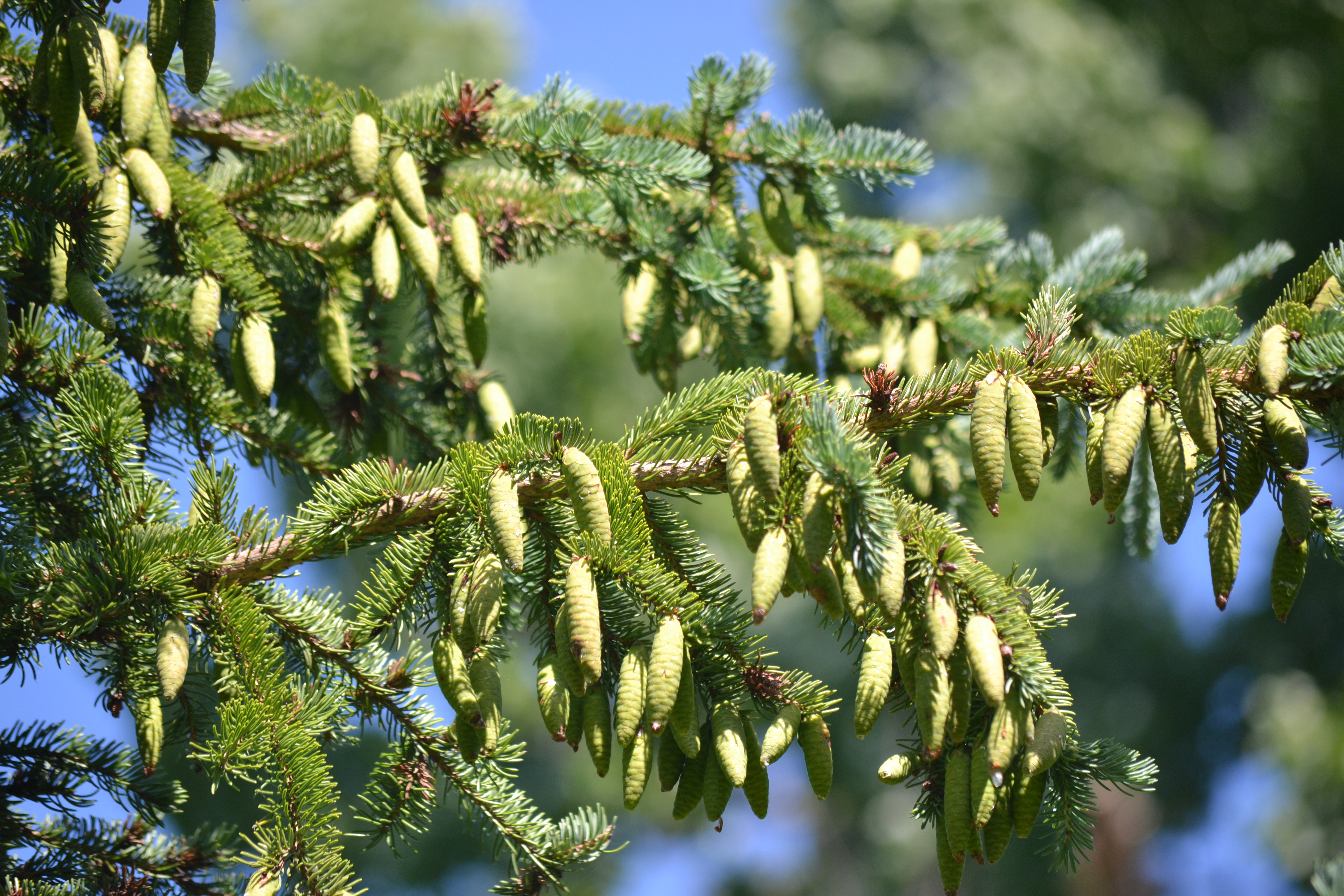 Jalene LaMontagne, an associate professor of ecology at DePaul University, studies mast seeding in white spruce and other boreal conifers. She and coauthors of a new paper explore the concept of ecological dipoles on plant and wildlife populations. (Image courtesy of Jalene LaMontagne)
Jalene LaMontagne, an associate professor of ecology at DePaul University, studies mast seeding in white spruce and other boreal conifers. She and coauthors of a new paper explore the concept of ecological dipoles on plant and wildlife populations. (Image courtesy of Jalene LaMontagne)CHICAGO — For decades, climatologists have used data to predict large trends in weather, such as El Niño, that affect entire continents. Increasingly, ecologists are using the same forecasting methods to predict changes in bird, plant and other wildlife populations. DePaul University ecologist Jalene LaMontagne is among the coauthors of a paper out this week in the journal Trends in Ecology and Evolution that highlights an emerging field: ecological dipoles.
In climatology, a dipole describes waves and patterns of weather that create opposite conditions across continents, such as the El Niño and La Niña phases. LaMontagne and her collaborators note that a similar opposite pattern occurs in plants and wildlife separated across continents, but has been widely overlooked. Understanding the climate-ecology connection is more urgent than ever as Earth is warming and the climate is changing, note the researchers.
 Jalene LaMontagne is an associate professor of ecology at DePaul University. (Image courtesy of Jalene LaMontagne)
Jalene LaMontagne is an associate professor of ecology at DePaul University. (Image courtesy of Jalene LaMontagne)“We are drawing attention to this novel approach, which links together a negative pattern and changes of population in animals, plants and other wildlife at a different scale,” said LaMontagne, a population ecologist and associate professor in DePaul’s College of Science and Health. “Scientists looking at the continental scale for data might see patterns they wouldn’t see if they were only looking across 100 kilometers or 10 kilometers,” she added.
While ecologists have long been interested in how local or regional temperature and climate influence organisms, few have looked at continent-wide trends, said LaMontagne. This approach will help ecologists understand how climate extremes affect ecosystems.
In her population ecology research, LaMontagne studies patterns in mast seeding among boreal conifers, such as white spruce trees. These trees sync up and can produce large amounts of seeds one year, but very few the next. This can now be linked to continental trends, and can impact what kind of birds are seen at a feeder in backyards.
“In North America, if we have high levels of reproduction in trees in the East, then we don’t have that in the West. Seeds that are produced by those trees are a food source to animals, and those animals eat other animals, and there’s a chain effect,” she explained.
LaMontagne and coauthors Benjamin Zukerberg of the University of Wisconsin-Madison and Courtney Strong of the University of Utah reviewed this research as part of a National Science Foundation macrosystems grant to explore large scale, continental ecology. Other coauthors include Scott St. George of the University of Minnesota, Julio L. Betancourt with the U.S. Geological Survey and Walter D. Koenig of Cornell University.
“One of the things we learned while looking at these global patterns is that brush fires in Australia can be linked to what’s happening with ocean currents in the Indian Ocean,” said LaMontagne. The research team is tapping into the widespread data that’s available through the National Ecological Observatory Network or NEON, a 30-year long project to collect standardized data and track how the nation’s ecosystems are changing.
This work was supported by the National Science Foundation Macrosystems Biology and NEON-enabled Science projects 1926428, 1926341, and 1926221 and DEB EAGER project 1745496. Full text of the article is available at
https://bit.ly/jlam_TREE.
###
Source:
Jalene LaMontagne
jlamont1@depaul.edu
Media contact:
Kristin Claes Mathews
kristin.mathews@depaul.edu
312-241-9856